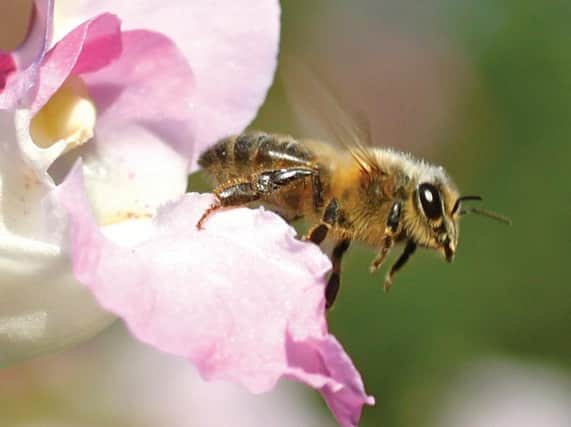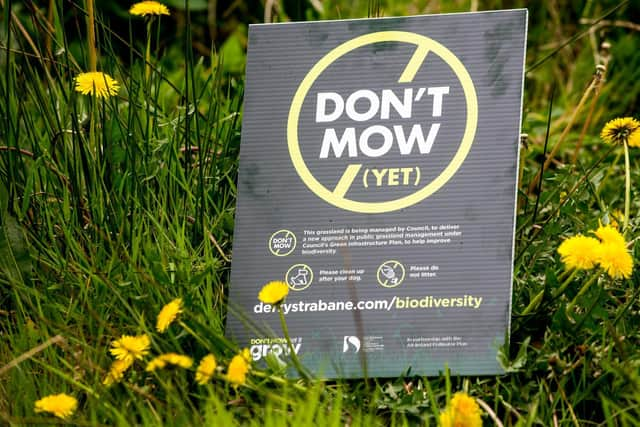Derry ‘bring back the bees’ drive has helped add £21,000 natural capital value in the western area


The ‘Don’t Mow Let it Grow’ initiative is part of Council’s pollinator plan and saw temporarily reduced cutting on selected sections of Council's parks and greenways network in an effort to create a more favourable habitat for bees in the summer months.
The local Council, along with Fermanagh and Omagh Council, Mid Ulster Council and Causeway Coast and Glens Borough Council in a knowledge learning and exchange programme through the campaign.
Advertisement
Hide AdAdvertisement
Hide AdChristine Doherty, Biodiversity Officer at Council, updated the Environment and Regeneration Committee’s monthly meeting this week who heard that the project has added a £21k natural capital value for the region.


“The Council partnership approach has played a vital role in conserving bee species,” she said.
“A third of the native bee population in Ireland are potentially at risk of extinction.
“We rely on bees to pollinate the majority of our crops.
“A reduction in bee populations will result in less choice and higher costs of fruit and vegetables.
Advertisement
Hide AdAdvertisement
Hide Ad“Councils have invested in new specialist machinery, which cuts and lifts the grass in late summer.
“Together, Councils have created 90 ha (equivalent to 168football pitches) of grasslands rich in native wild flowers and pollinators, including native bees, across the west of Northern Ireland.’
The majority of grasslands are cut too frequently, with grass cuttings left behind which increases soil nutrient levels and stimulates vigorous grasses.
On ‘Don’t Mow Let it Grow’ sites, Councils have changed this cycle of grass management, to create grasslands rich in native wild flowers.
Advertisement
Hide AdAdvertisement
Hide AdOn these sites, the grasses and wildflowers are allowed to grow over the Spring and Summer, before being cut and lifted in late August and September.
This allows wildflowers to complete their full cycle and set their seeds for the next year, removing the thick grass reduces the fertility to facilitate sustainable species rich meadows in forthcoming years.
This is making a positive contribution towards the conservation of the UK's biodiversity and has helped to deliver the All-Ireland Pollinator Plan.
This joined up approach has increased ecological connectivity and enhanced the existing natural capital value (ecosystem services provided by pollinators) of these sites by £21,000 / annum for bees.
Advertisement
Hide AdAdvertisement
Hide AdIt has increased the number and diversity of flowering plants, provided a more sustainable service under the current conditions and has reduced the Councils carbon footprint.
For further information on this initiative and Council's wider plan, visit www.derrystrabane.com/biodiversity.
Comment Guidelines
National World encourages reader discussion on our stories. User feedback, insights and back-and-forth exchanges add a rich layer of context to reporting. Please review our Community Guidelines before commenting.